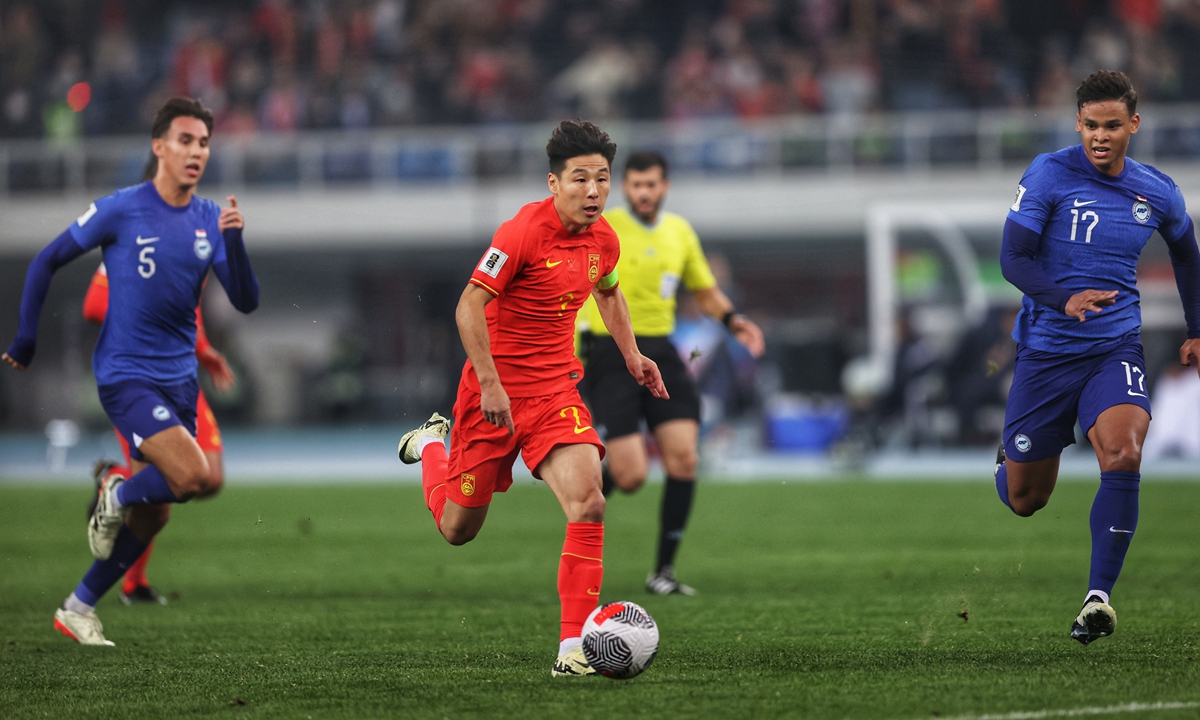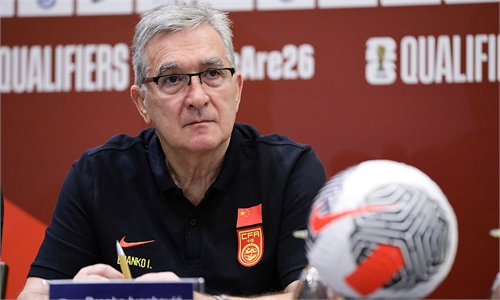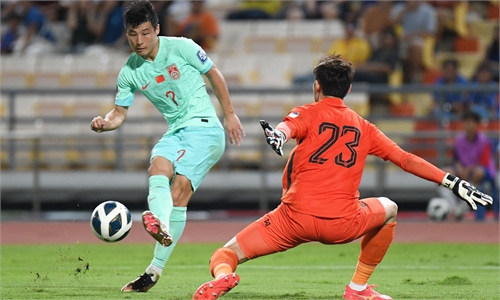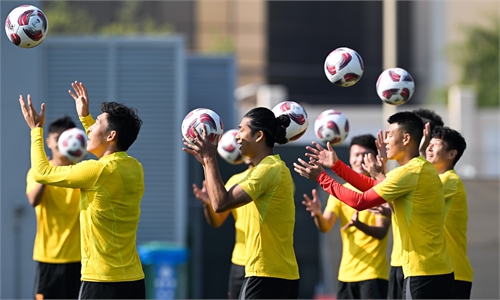ARTS / CULTURE & LEISURE
Team China to play against S.Korea in critical qualifier

Wu Lei in action during the game against Singapore on March 26, 2024 in Tianjin Photo: Cui Meng/GT
The Chinese national soccer team is gearing up for a crucial away pitch World Cup qualifier against South Korea on Tuesday.
For China, securing at least a draw in this match is essential to advance from the 36-team second round to the next round of the Asian qualifiers, which consists of 18 teams.
Addressing media ahead of the match, head coach Branko Ivankovic expressed cautious optimism.
"We have come to South Korea to face a strong Asian team, a regular World Cup participant since 2002. Facing such a strong opponent, we are still confident in accomplishing our mission," Ivankovic stated.
However, the odds are stacked against China.
South Korea, currently ranked 23rd in the FIFA world rankings, stands as a formidable opponent compared to China's 88th position.
Despite having already secured the top spot in their group, South Korea is unlikely to ease up, as they aim to maintain their top-three ranking in Asia for a favorable position in the next round of qualifiers.
The Chinese team is also grappling with injuries to key players.
Following a match against Thailand on Thursday, pivotal members such as keeper Wang Dalei and forwards Zhang Yuning and A Lan sustained injuries.
The condition of naturalized A Lan is particularly severe, leading to his absence in the upcoming match against South Korea. Although star player Wu Lei, who has been recovering from a meniscus injury, is set to rejoin the team after serving a suspension, the extent of his recovery remains uncertain.
Ivankovic acknowledged the challenges posed by the injuries, but called for the team to focus on the match itself rather than the key players' injuries.
"The more injury cases that happen, the more we need to focus on the game and on ourselves." he said.
When asked about specific strategies to counter South Korea's star players, including Tottenham Hotspur star Son Heung-min, the Croatian coach emphasized teamwork.
"South Korea has many top players like Son. For us, it is crucial to rely on teamwork to resist their individual brilliance."
Ivankovic reiterated the significance of the match for China.
"We all know that getting points from this match is very important for the team," he said. "We are here not for a tour, but to prepare to play a competitive match and to achieve the goal of advancing to the next stage," he said.
A loss for China could open the door for Thailand, who are just three goals behind China in terms of goal difference in the current phase, to snatch the qualifying spot.
The current composition of the Chinese squad underscores the challenges they face. Out of the entire team, only four players are under the age of 23, while 11 players are over 30. This age structure suggests that China's journey in the World Cup qualifiers may not go much further.
"The lack of competitive international experience among young Chinese players is evident, stemming from a dearth of significant matches," Mao Jiale, a Chengdu-based sports commentator, told the Global Times. "This creates a vicious cycle where younger players have limited opportunities to develop, stunting the growth of future talent."
Reflecting broader trends in Chinese soccer, the domestic top-tier Chinese Super League this season registered 75 domestic players aged 33 and above, compared to just 68 players under 21.
Yet, the older players' cumulative play time in the first 14 rounds was 7.4 times that of their younger counterparts.
"This disparity highlights the severe talent gap that hampers the national team's performance and progress," Mao noted.



